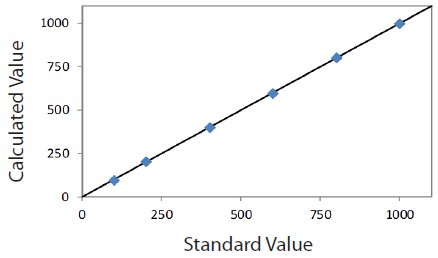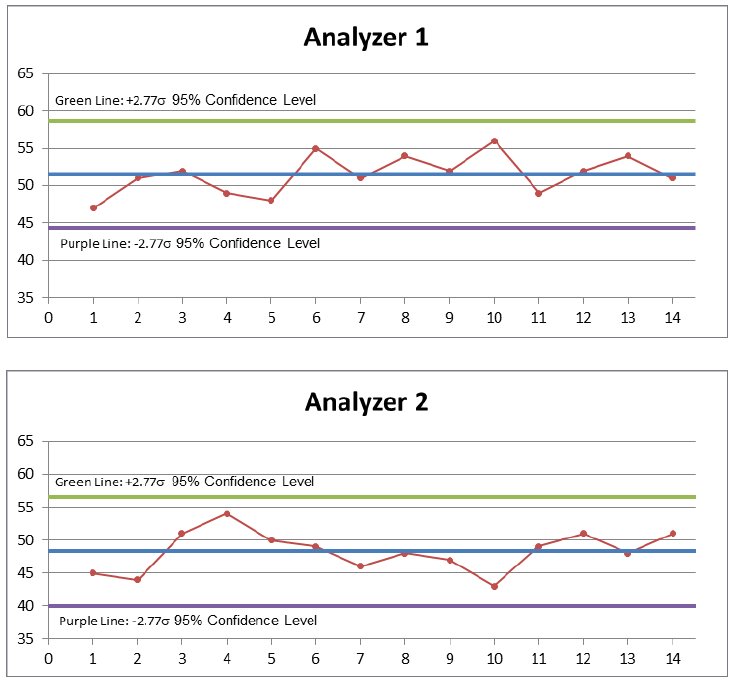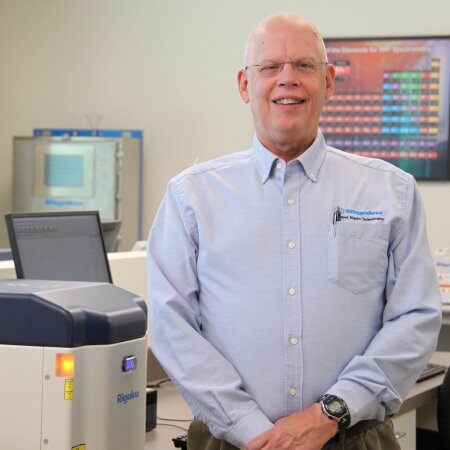NEX QC—Analysis of Sulfur in Diesel Fuel per ASTM D4294

Scope
The analysis of sulfur in diesel fuel as per ASTM D4294 is demonstrated.
Background
Sulfur will always be an important element in crude oils and fuel oils. Sulfur content is regulated in many products, and plays an important role in fuel quality and control of polluting emissions. Around the world regulations are limiting the amount of sulfur allowable in diesel fuels, kerosene, heating oils, etc. Jet fuels also rely on the sulfur content to ensure optimum fuel properties, in addition to emission concerns.
Therefore, from characterizing, blending and refining crude oil to the production of various fuel oils, monitoring sulfur content will continue to be a very important measurement. To meet the needs of the industry, Rigaku offers NEX QC, a simple and versatile benchtop EDXRF analyzer for the analysis of sulfur and other elements in petroleum oils and fuels.
Calibration – Standard range
Calibration is made using matrix-matched standards that match the fuel oil or biodiesel blend being measured.
| Element: S Units: ppm |
||
| Sample I.D. | Standard value | Calculated value |
| STD 1 | 100 | 97 |
| STD 2 | 200 | 205 |
| STD 3 | 400 | 399 |
| STD 4 | 600 | 596 |
| STD 5 | 800 | 803 |
| STD 6 | 1000 | 999 |
Correlation Plot S
 Repeatability – Standard range
Repeatability – Standard range
To demonstrate repeatability (precision), the select samples were chosen from the set of calibration standards. Each sample was measured in static position with typical results shown below.
Element: S Units: ppm
| Sample I.D. | Standard value | Average value | Std. dev | % Relative |
| STD 1 | 100 | 98 | 3.4 | 3.5 |
| STD 6 | 1000 | 1002 | 7.2 | 0.7 |
Calibration – Low range
The low sulfur range 50 – 100 ppm uses typical ULS technique protocol. An empirical calibration was built using a set of commercially available certified diesel fuel standards.
| Element: S Units: ppm |
||
| Sample I.D. | Standard value |
Calculated value |
| STD 2 | 50 | 53 |
| STD 3 | 75 | 75 |
| STD 4 | 100 | 98 |
Correlation plot S
.jpg?width=446&height=227&name=EDXRF1135%20Correlation%20plot%20(low%20range).jpg)
Repeatability – Low range
To demonstrate repeatability (precision), the select samples were chosen from the set of calibration standards. Each sample was measured in static position with typical results shown below.
Element: S Units: ppm
| Sample I.D. | Standard value | Average value | Std.dDev | % Relative |
| STD 2 | 50 | 52 | 2.0 | 4.0 |
| STD 4 | 100 | 102 | 3.0 | 3.0 |
Reproducibility – Low range
Reproducibility is the longer-term reliability over many days, different aliquots of the same sample, different analyzers and different operators. Reproducibility is expected to be 1.5 – 2.0X repeatability. To demonstrate reproducibility, two NEX QC analyzers were tested over a 10-day period. A 50 ppm sample was measured on each machine, once or twice a day, for a total of 14 measurements over the 10-day period. ULS measurement protocol was used, and no Standardize drift correction was required.
Sample: 50.0 ppm S in Diesel - Units: ppm
| Standard value | Average value | Std. dev | % Relative | |
| Analyzer 1 | 50.0 | 51.5 | 2.6 | 5.2 |
| Analyzer 2 | 50.0 | 48.3 | 3.0 | 6.0 |

International standard test methods
The Rigaku NEX QC complies with the following international standards test methods for measuring sulfur in crude and petroleum oils. Note that by weight 1 ppm = 1 mg/kg.
| ASTM D4294 | ISO 20847 | ISO 8754 | IP 496 | IP 336 | JIS K 2541-4 |
| 16 ppm - 5% | 30 - 500 mg/kg | 100 mg/kg - 5% | 100 mg/kg - 5% | 100 mg/kg - 5% | 0.01 - 5% |
Fuel types
The performance shown here for diesel is also applicable to the following fuel and oil types when calibrated over similar ranges:
- Diesel
- Kerosene
- Heating oils
- Jet fuel
- Naphtha
- Other middle distillates
- Residual oil
- Crude oil
- Unleaded Gasoline
- Gasohol
- Hydraulic oil
- Mineral oil
- Biodiesel (see Note 2 ASTM D4294-10)
- And other similar petroleum products
Conclusion
The performance shown here demonstrates the ability of the NEX QC to yield excellent results for the measurement of sulfur in diesel fuel in air, without the need for helium purge. Helium can be used to optimize the low sulfur range. Simple, modern touch screen interface allows for reliable and efficient measurement protocols.
Related products
NEX QC Series
Combines quality, affordability, and performance for a wide range of applications
Learn More
Contact Us
Whether you're interested in getting a quote, want a demo, need technical support, or simply have a question, we're here to help.

_picture_2020.06.25.jpg?width=800&height=610&name=800x610%20NEX%20QC%2B%20(S%20in%20Crude%20screen)_picture_2020.06.25.jpg)